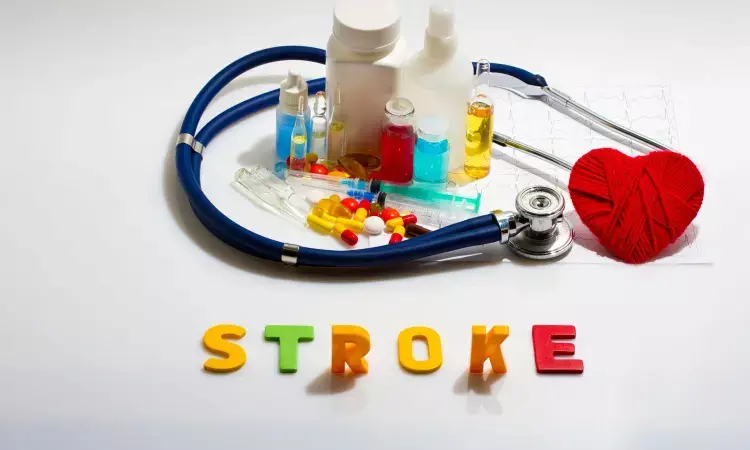- Home
- Medical news & Guidelines
- Anesthesiology
- Cardiology and CTVS
- Critical Care
- Dentistry
- Dermatology
- Diabetes and Endocrinology
- ENT
- Gastroenterology
- Medicine
- Nephrology
- Neurology
- Obstretics-Gynaecology
- Oncology
- Ophthalmology
- Orthopaedics
- Pediatrics-Neonatology
- Psychiatry
- Pulmonology
- Radiology
- Surgery
- Urology
- Laboratory Medicine
- Diet
- Nursing
- Paramedical
- Physiotherapy
- Health news
- Fact Check
- Bone Health Fact Check
- Brain Health Fact Check
- Cancer Related Fact Check
- Child Care Fact Check
- Dental and oral health fact check
- Diabetes and metabolic health fact check
- Diet and Nutrition Fact Check
- Eye and ENT Care Fact Check
- Fitness fact check
- Gut health fact check
- Heart health fact check
- Kidney health fact check
- Medical education fact check
- Men's health fact check
- Respiratory fact check
- Skin and hair care fact check
- Vaccine and Immunization fact check
- Women's health fact check
- AYUSH
- State News
- Andaman and Nicobar Islands
- Andhra Pradesh
- Arunachal Pradesh
- Assam
- Bihar
- Chandigarh
- Chattisgarh
- Dadra and Nagar Haveli
- Daman and Diu
- Delhi
- Goa
- Gujarat
- Haryana
- Himachal Pradesh
- Jammu & Kashmir
- Jharkhand
- Karnataka
- Kerala
- Ladakh
- Lakshadweep
- Madhya Pradesh
- Maharashtra
- Manipur
- Meghalaya
- Mizoram
- Nagaland
- Odisha
- Puducherry
- Punjab
- Rajasthan
- Sikkim
- Tamil Nadu
- Telangana
- Tripura
- Uttar Pradesh
- Uttrakhand
- West Bengal
- Medical Education
- Industry
Frailty Significantly Reduces Life Expectancy After Stroke or TIA in Elderly: Study

A recent study published in the Journal of Stroke and Cerebrovascular Diseases revealed that frailty significantly worsens outcomes for older adults who undergo ischemic stroke or transient ischemic attack (TIA), shortening life expectancy and increasing long-term mortality.
This research analyzed health data from the Vektis health insurance claims database, focusing on patients aged 70 and older who suffered a stroke or TIA in 2018. Frailty was identified using the U-PRIM frailty index, that evaluates vulnerability in older adults, while a non-frail control group was matched by age, sex, and socioeconomic status. The mortality data were tracked through May 2024, providing follow-up of roughly 5 to 6 years.
Among 16,778 frail and 10,069 non-frail participants, frail individuals underwent markedly higher mortality and shorter life expectancy after cerebrovascular events. Also, 66% of frail patients died following ischemic stroke when compared with 55% of non-frail patients. For TIA, the gap was even wider, with 54% of frail patients dying versus 36% of non-frail counterparts.
When examining life expectancy, the study found that frail patients who suffered a stroke lived an average of 3.8 years afterward, when compared with 5.2 years for non-frail individuals. TIA survivors demonstrated a similar pattern where frail patients lived about 5.9 years on average, while non-frail patients had life expectancy exceeding 6.4 years.
Using Cox regression analysis to adjust for potential confounders, frailty increased the risk of death by 30% after ischemic stroke and by 72% following TIA. The study examined secondary outcomes, finding that frail patients were more likely to experience additional cardiovascular events. After ischemic stroke, 40% of frail patients had further cardiovascular complications when compared with 38% of non-frail patients. Following TIA, rates were 18% versus 13%.
These results highlight the significant impact of frailty on survival in older adults after stroke or TIA. The study observed that recognizing frailty in clinical practice can inform treatment decisions, guide monitoring for recurrent cardiovascular events, and support discussions about advanced care planning.
The study highlights that age alone does not fully capture risk where frailty plays a critical role in predicting outcomes after cerebrovascular events. Overall, this research provides important evidence that frailty is a key factor of both mortality and life expectancy following ischemic stroke and TIA.
Reference:
Prins, S. R., Damoiseaux-Volman, B. A., van Erkelens, J. A., Vermeer, S. E., Van der Velde, N., & Van den Berg-Vos, R. M. (2025). Life expectancy after an ischemic stroke or transient ischemic attack in older adults - the role of frailty. Journal of Stroke and Cerebrovascular Diseases: The Official Journal of National Stroke Association, 108448. https://doi.org/10.1016/j.jstrokecerebrovasdis.2025.108448
Neuroscience Masters graduate
Jacinthlyn Sylvia, a Neuroscience Master's graduate from Chennai has worked extensively in deciphering the neurobiology of cognition and motor control in aging. She also has spread-out exposure to Neurosurgery from her Bachelor’s. She is currently involved in active Neuro-Oncology research. She is an upcoming neuroscientist with a fiery passion for writing. Her news cover at Medical Dialogues feature recent discoveries and updates from the healthcare and biomedical research fields. She can be reached at editorial@medicaldialogues.in
Dr Kamal Kant Kohli-MBBS, DTCD- a chest specialist with more than 30 years of practice and a flair for writing clinical articles, Dr Kamal Kant Kohli joined Medical Dialogues as a Chief Editor of Medical News. Besides writing articles, as an editor, he proofreads and verifies all the medical content published on Medical Dialogues including those coming from journals, studies,medical conferences,guidelines etc. Email: drkohli@medicaldialogues.in. Contact no. 011-43720751


